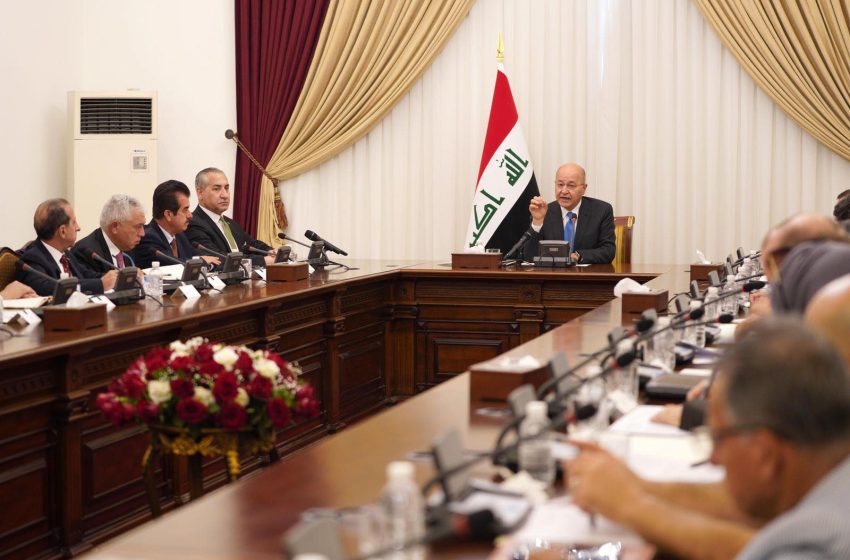Iraq President says dealing with climate change must be national priority

The Iraqi President Barham Salih during the meeting held on the occasion of the World Environment Day. The Iraqi Presidency image.
Baghdad (IraqiNews.com) – The Iraqi President, Barham Salih, stressed on Sunday that dealing with climate changes must be a national priority, during a meeting held on the occasion of the World Environment Day in Al-Salam Palace in Baghdad, according to a press statement issued by the Iraqi Presidency.
The meeting was attended by the Minister of Environment, Jassim al-Falahi, and representatives of the United Nations, UNESCO and Iraqi non-governmental organizations (NGOs) specialized in environment protection.
According to the presidency press statement, Salih stressed that climate change represents a threat to the country’s future as Iraq is one of the most countries vulnerable to the impacts of climate change.
Salih indicated that there is a need to revive the Mesopotamia through national strategic plans, in addition to the necessary partnership with NGOs and youth.
“The population of Iraq now is more than 41 million, it is expected to be 52 million after ten years, and 80 million in 2050. The increase will be associated with an increased demand for water, while desertification is affecting 39 percent of the Iraqi lands, water scarcity has a negative impact on all parts of Iraq, and fertility of agricultural lands will be lost due to salinization,” Salih said during the meeting.
“According to studies of the Ministry of Water Resources, the shortage in water is expected to be 10.8 billion cubic meters by 2035 because of the decline in water levels of the Tigris River and the Euphrates River, evaporation and the failure to modernize irrigation methods,” Salih explained.
According to the press statement, the project of reviving Mesopotamia presented by the Iraqi Presidency and adopted by the Council of Ministers is dedicated not only for Iraq, but for all countries that face the threats of climate change in the region.
The project relies on a strategy that includes afforestation, modernization of water management of the Tigris River and the Euphrates River, generation of clean energy and integration of environmental plans for countries in the region.
